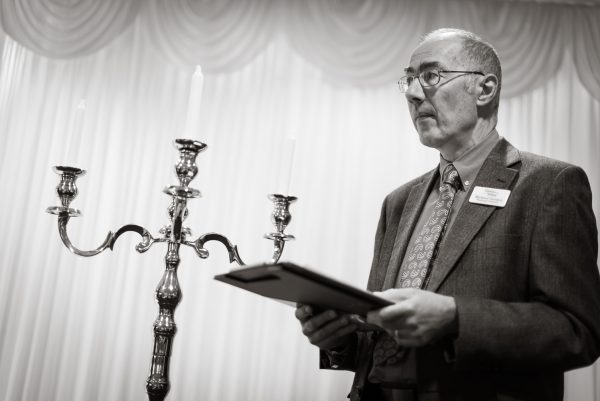
A Wedding Speech – or death?
Many people fear delivering a speech more than they fear death! (Apparently, this is a statistical fact!)
The likelihood is that most people will be called upon to write and deliver a speech at least some time in their life. It may be for a business presentation or else for a family event. It may be in front of a handful of people or before a whole crowd.
My credentials
Only a few years ago, before I became a civil celebrant, I was terrified at speaking about my own business in front of a dozen or so people – not any more. I can modestly claim to have brought the house down on two occasions with a wedding speech; I now willingly and confidently address small crowds (I haven’t got to the 1000s stage, but I hope that may happen).
Focus
I am going to concentrate here on wedding/vow renewal-type ceremonies. Content is another matter, but for now I really want to cover delivery.
10 Tips
- It is better to be brief than over-long
- If you can deliver humour successfully, do so; if not, keep those jokes to a minimum!
- Avoid too many “in-references” – at a wedding half the guests may not know anything about one of the newly-weds, so in-jokes can fall very flat – and exclude whole groups
- Use a script (only very accomplished, experienced speakers can deliver off the cuff), but rehearse so that you can make your speech with only occasional reference to your notes. Eye contact is very important
- There may be a good sound system, but ensure you can be heard loudly and clearly – you can help that by not burying your head in your notes and by speaking more s-l-o-w-l-y than you would expect
- Avoid saying anything controversial, whether about the families present or about politics – the idea of the proceedings is to create a wonderful atmosphere, not to score points or secure cheap laughs!
- Use anecdotes, but ones that fit in and are relevant. Avoid meandering ‘shaggy dog’ stories that may lose your audience. Be very sure whether that embarrassing story about the bride will be well-received!
- I stress that delivery should be slower, rather than faster, and do not be afraid of a silence for effect, if appropriate. Try not to address just one area of the room, but make everyone feel included. Smile – at least, at the beginning and end.
- If very nervous, try a few deep breaths and no (or minimal!) alcohol – and remember, the guests will be on your side, and willing you to do well
Remember that it is a privilege to be asked to give a speech, so be grateful. Remember your audience at all times. Oh, and, however nervous you may be, save the alcohol for afterwards!
Enjoy the occasion.
